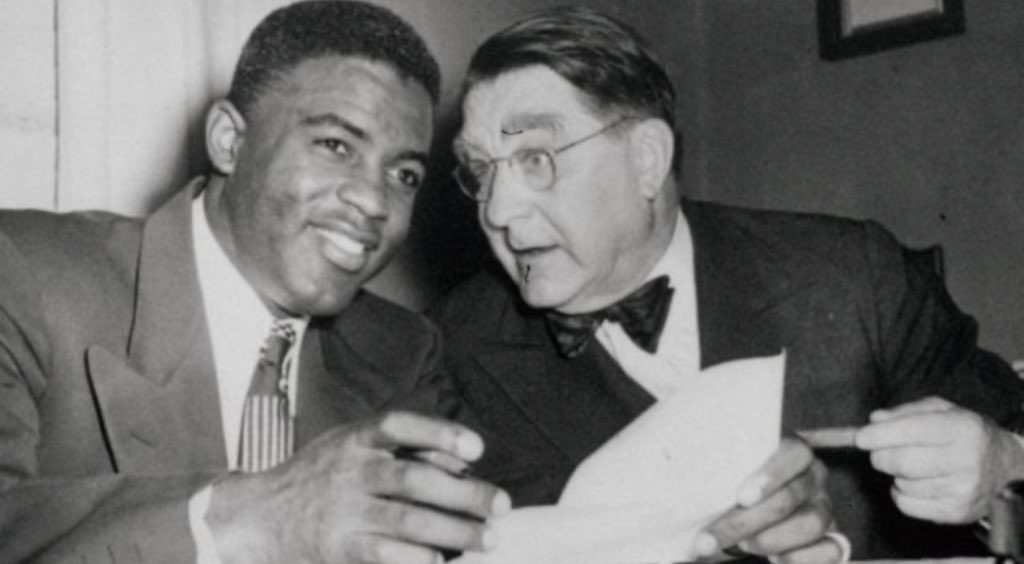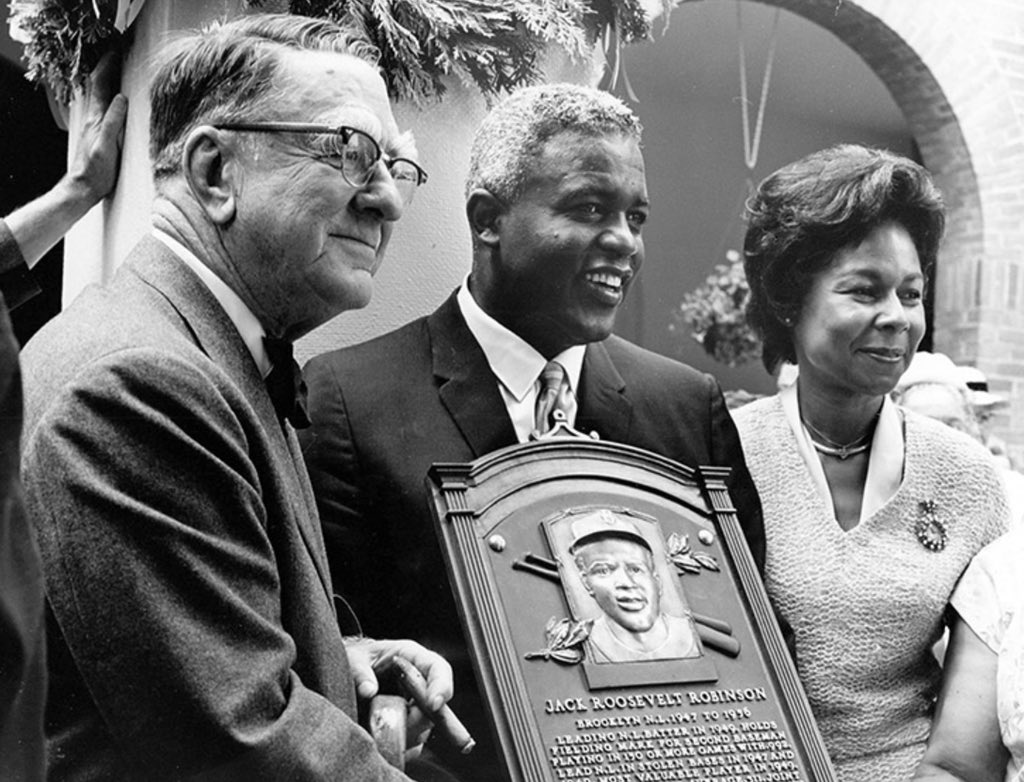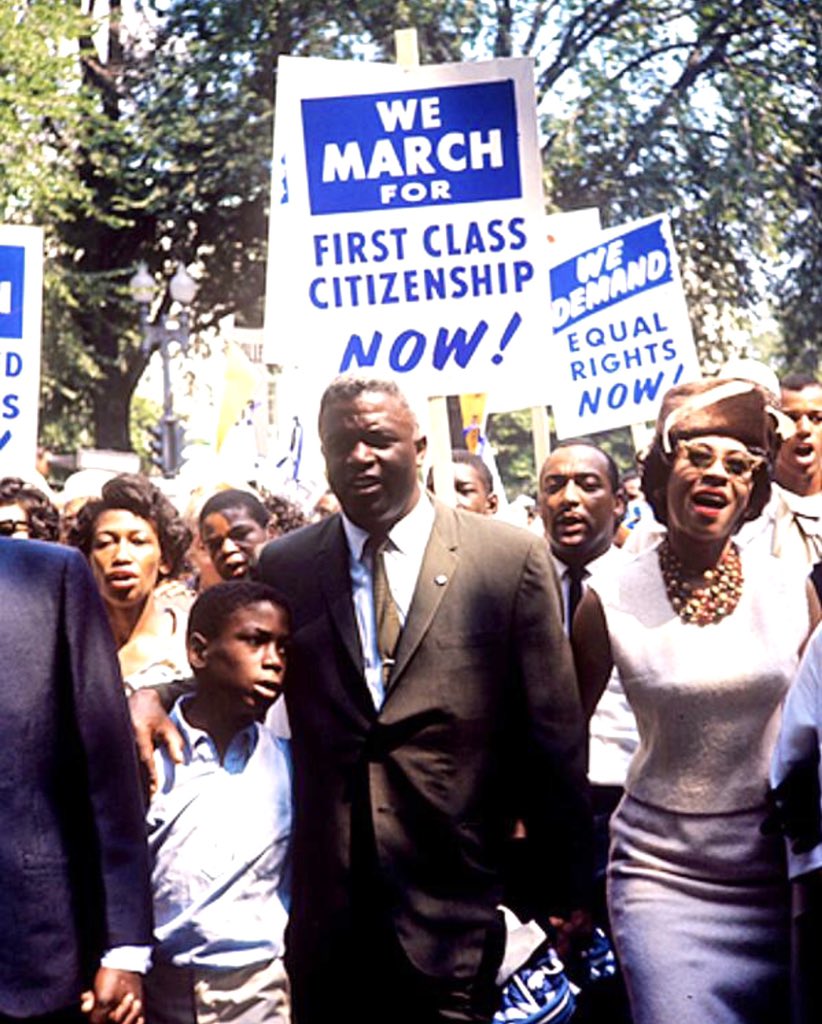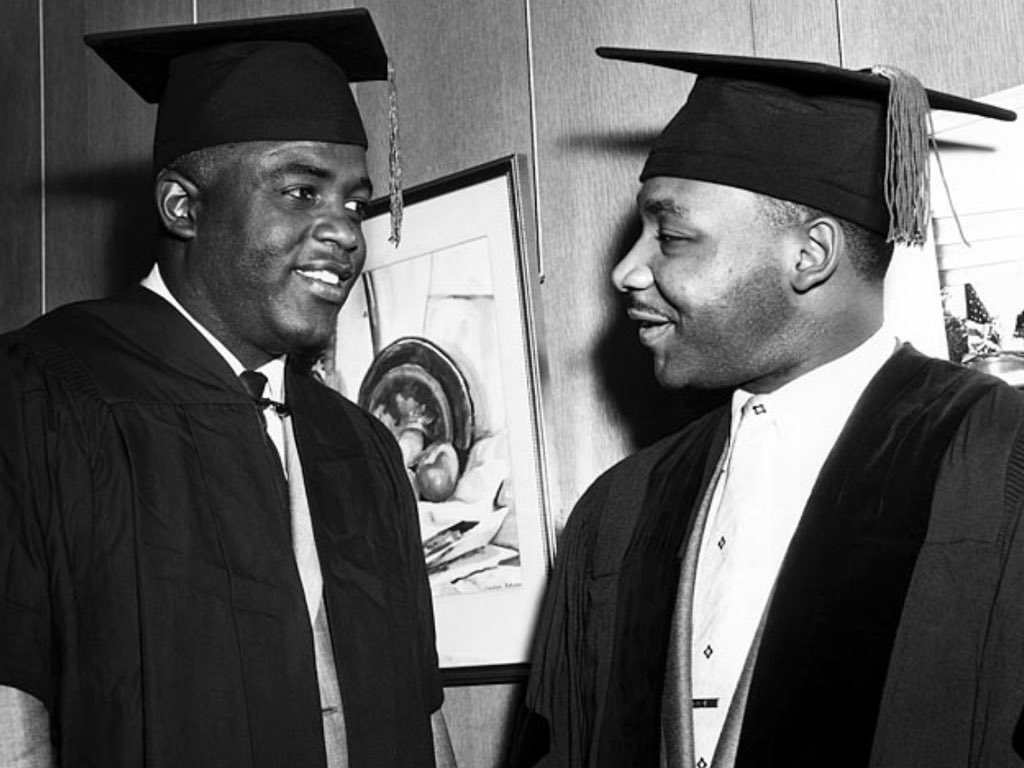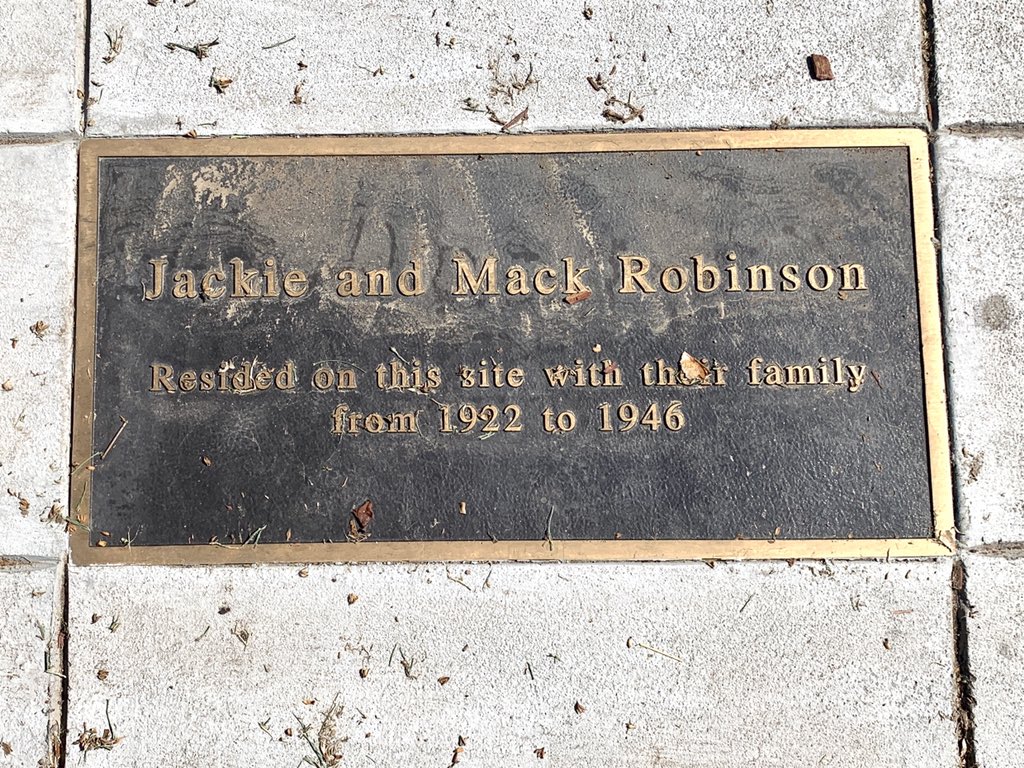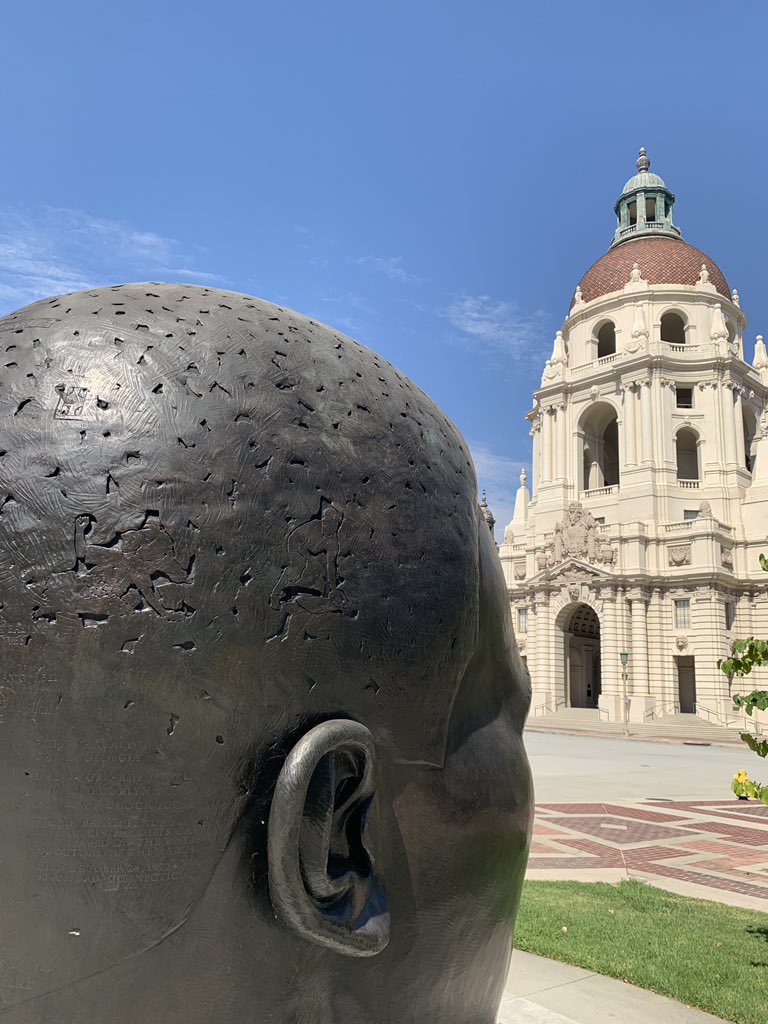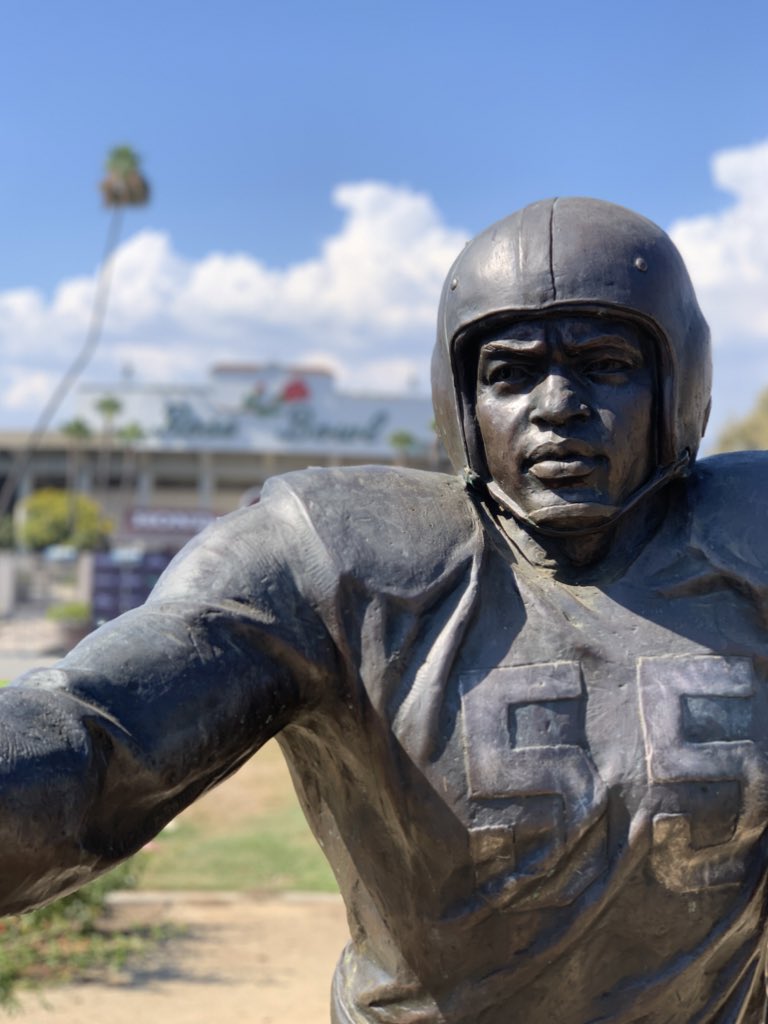Amid these trying times, two of history’s most important figures are reunited.
As MLB celebrates its delayed in-season Jackie Robinson Day today, America also commemorates the 1963 #MarchonWashington.
There are myriad reasons why #Jackie42’s legacy deserves to be honored today.
As MLB celebrates its delayed in-season Jackie Robinson Day today, America also commemorates the 1963 #MarchonWashington.
There are myriad reasons why #Jackie42’s legacy deserves to be honored today.
Typically, Jackie Robinson Day is celebrated around Major League Baseball each year on April 15. It’s to commemorate the date Robinson broke the grossest and most well-known of baseball’s “unwritten rules:” its color barrier.
April 15, 1947 was the day he donned Dodger blue.
April 15, 1947 was the day he donned Dodger blue.
Since that day, no player has been prevented from playing the game — gentleman’s agreement or not — because of the color of his skin.
As sacred as the date April 15 is to the modern game, the No. 42 is even more revered. It was the number Robinson wore throughout his 10-year MLB career. Each year on Jackie Robinson Day, every MLB player wears the number. It has also been permanently retired across the league.
So why then is August 28 significant?
It was August 28, 1945 when Brooklyn Dodgers president/GM Branch Rickey scheduled a meeting with Robinson at 215 Montague St. in Brooklyn. Initially, Robinson believed Rickey wanted to sign him to the Brooklyn Brown Dodgers of Rickey’s “new” Negro League, the US League.
The USL was a ruse Rickey hatched that May to throw off other execs. He signed a coach (famed Negro Leagues great Oscar Charleston) & sent scouts all over the country to scour talent for the new league.
His ulterior motive? Looking for Black players to integrate his MLB Dodgers
His ulterior motive? Looking for Black players to integrate his MLB Dodgers
During the Aug. 28 meeting, Rickey told Robinson his true plans. He told him he felt he was the perfect man to integrate baseball. He told Jackie that at least through his first full MLB season, he needed to absorb the abuses he was surely going to receive from white fans.
Rickey told Robinson he would formally sign him to the Dodgers’ top farm club, the Montreal Royals. After spending a year in Montreal, his time with the Dodgers would begin.
That October of 1945, Robinson signed. For the first time in more than a half century, a Black man would play Major League Baseball.
For more on this meeting, including details on the other Negro League players Rickey had intended to sign at the same time as Robinson, read this from baseball historian John Thorn https://ourgame.mlblogs.com/215-montague-street-8f13b6426565?gi=2a1de654a6f6">https://ourgame.mlblogs.com/215-monta...
Exactly 15 years after his electrifying rookie season, Jackie Robinson was elected to baseball’s Hall of Fame. When he was inducted in 1962, he was in the middle of the next act of his life: standing on the front lines of racial, social and socioeconomic equality.
One year after his induction, on Aug. 28, 1963, Robinson took his three children to Washington D.C. for The March on Washington for Jobs and Freedom. According to the AP, he spoke that day, saying:
“I know all of us are going to go away feeling we cannot turn back.”
“I know all of us are going to go away feeling we cannot turn back.”
While searching for those words from Robinson, I came across these he gave at a dinner for the SCLC in 1962. They echo words used at The March the next year by Dr. Martin Luther King, Jr. in his “I Have a Dream” speech. They clearly STILL resonate today, nearly 60 years later:
“All I want for my children — and I think all you want for yours — is a fair and equal chance and respect for their dignity as human beings. Give us that and we’ll do the rest.”
In Ken Burns’ documentary “Jackie Robinson,” a couple of minutes are devoted to mentioning his attendance at the 1963 March. Watch that here. https://video.pbs12.org/video/jackie-robinson-march-washington/">https://video.pbs12.org/video/jac...
As fierce as he was on the base paths, Robinson was even more fiery when it came to politics. Throughout his post-playing years he wrote his share of opinion pieces that appeared in publications across the country.
He was often bitingly critical; even of his peers.
He was often bitingly critical; even of his peers.
In May 1967, he pinned an op-ed in the Chicago Defender in which he disagreed with Dr. King’s opposition to the Vietnam War:
“I am confused Martin, because I respect you deeply. But I also love this imperfect country,” he wrote.
“I am confused Martin, because I respect you deeply. But I also love this imperfect country,” he wrote.
The two men later spoke after the op-ed. Robinson still disagreed with his friend, but he knew he needed to repair their relationship in print. So in July 1967 he wrote that King was “the finest leader the Negro people have and one of the most magnificent leaders the world has.”
The next spring, on April 4, 1968, the Rev. Dr. Martin Luther King, Jr. was killed, struck by an assassin’s bullet. Robinson went on to call the murder “the most disturbing and distressing thing we’ve had to face in a long time.”
That same week, the Pittsburgh Pirates, led by RF and King idolizer Roberto Clemente, forced MLB into a work stoppage reminiscent of what we’ve seen in sports this week.
Baseball’s 1968 opening week coincided w/ April 9, the day King was buried. Players felt it wrong to play.
Baseball’s 1968 opening week coincided w/ April 9, the day King was buried. Players felt it wrong to play.
Clemente’s joint statement w/ teammate Dave Wickersham:
“We are doing this because we white and black players respect what Dr. King has done for mankind. Dr. King not only was concerned with Negro or whites, but also poor people. We owe this gesture to his memory and his ideals”
“We are doing this because we white and black players respect what Dr. King has done for mankind. Dr. King not only was concerned with Negro or whites, but also poor people. We owe this gesture to his memory and his ideals”
Its start pushed back, baseball began the 1968 season on Wednesday, April 10. Here’s more from the Hall of Fame https://baseballhall.org/discover/martin-luther-king-jrs-assassination-brought-baseball-to-a-halt-in-1968">https://baseballhall.org/discover/...
There’s so much more to Jackie Robinson and The March than can really be told within just this thread. But I’ll close with a tip of the cap to Pasadena, California, the place where the South Georgia native was raised.
Across from Pasadena City Hall are these bodiless head statues of Jackie and his brother Mack (a 200-meter hero who finished second to Jesse Owens in the 1936 Berlin Olympics). And, if you’ve been to the Rose Bowl, you’ve undoubtedly seen the statue of Jackie, a five-sport star.
And please read this brilliantly crafted letter to Jackie from @curlyfro, who regularly says the things I struggle to articulate. When it comes to baseball and our country at large, Jackie would find that so very little has changed from the days he lived. https://www.baseballprospectus.com/news/article/61428/dear-jackie-robinson-baseball-racism-apple-pie/">https://www.baseballprospectus.com/news/arti...

 Read on Twitter
Read on Twitter

